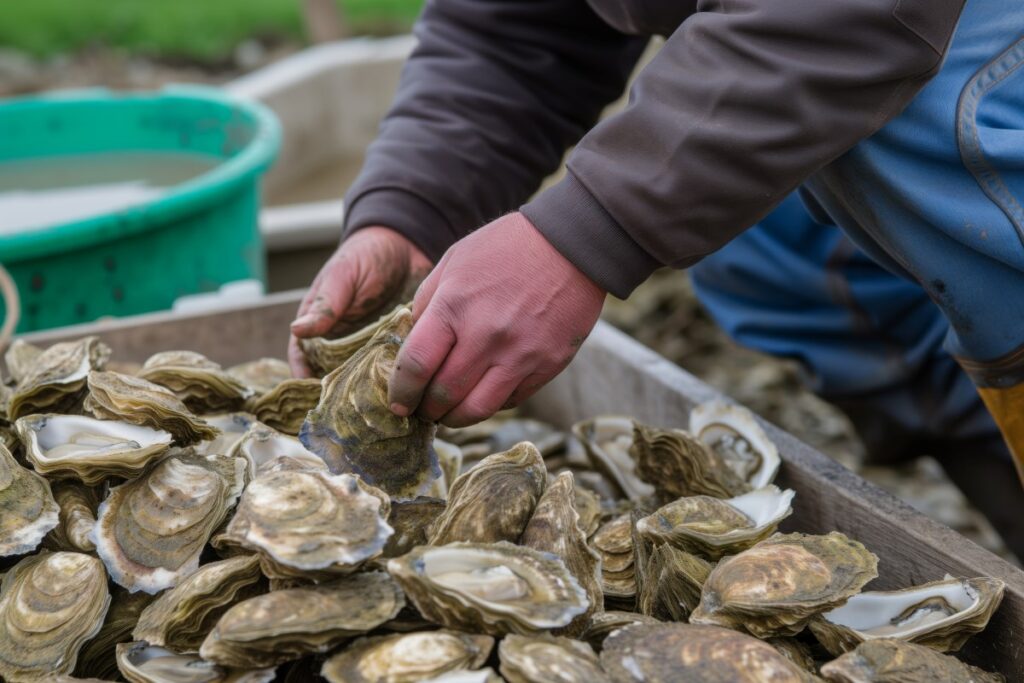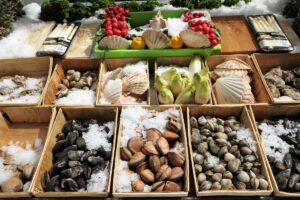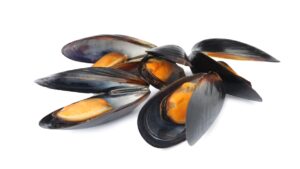An uphill task

The shellfish world is one full of contrasts, Nicki Holmyard finds
As we gained plaudits, column inches and airtime in March for the wonderful benefits to the environment, biodiversity, ecosystem services, food security and surrounding fisheries that our offshore mussel farm brings, it struck me that this side of the business is far removed from the daily struggle to stay in existence.
Eleven years of expensive research by the University of Plymouth, during which time we have fully sponsored three PhD students and played a major role in getting the new Ropes to Reefs project off the ground, all provide good news stories. What is largely ignored by the media is the ongoing issues we face in righting the wrongs of Brexit, fighting a political and regulatory system that appears not to care, and battling the water companies to stop them polluting our rivers and seas. It’s an uphill task and it’s exhausting, but bad news stories are rarely welcome!
All strategy documents and national plans point to shellfish aquaculture as a saving grace for future food security, but with no practical back-up and no enabling environment, the sentiments are hollow.
One particularly galling point is that the UK is allowing the import of bivalves from Grade B waters into this country and has implemented legislation to enable that to happen, yet it still has not managed to get trade in the other direction reinstated following Brexit. This has seen the Welsh mussel industry virtually disappear.
Furthermore, the Fisheries Minister Mark Spencer recently praised the UK’s ability to smooth the path for importers of seafood products through use of electronic certification, while still failing to put a rocket under the Department for Environment, Food and Rural Affairs (Defra) for stalling yet again on the implementation of an electronic certification system for exports.

Shellfish comes in a huge variety of species
Why don’t Brits eat shellfish?
In another contrast, we are good at growing shellfish such as mussels and oysters in the UK, yet our consumption levels are miniscule compared to the likes of France, Spain and Italy.
With 26% of adults and 23.4% of children aged 10 to 11 years in England obese and a further 38% overweight, plus a rapidly escalating diabetes crisis in which the number of people affected topped five million in 2024, there has never been a more urgent need to change the national diet.
Farmed shellfish are packed with vitamins, minerals, essential amino acids and micronutrients, all of which are essential for promoting health and wellbeing. They are high in protein and low in calories, making them a good food choice for weight management. They are particularly high in omega-3 fatty acids, which are beneficial for heart health, brain health, mental health and the immune system. Getting more people to eat them is another matter…
Shellfish, like most seafood, is at its best when eaten fresh, but packs of cooked mussels in sauce are not a bad substitute. Sales of these are growing in retail and food service year on year. Canned mussels are also becoming more popular and grace the table of many a restaurant as a starter or part of a tapas meal – often in the tin.
Dr David Willard of Cambridge University believes that the answer to encouraging greater consumption of bivalves lies in including mussel and clam meat in seafood staples that are familiar to the public, such as fish fingers and fish cakes. However, the economics of using rope-grown shellfish as a highly processed ingredient have yet to be fully analysed. And do we really want to see such a high-quality food turned into a commoditised, anonymous ingredient?
Getting back to contrasts, I am always amused by the number of people who wax lyrical on social media channels about the wonderful displays of fresh fish and shellfish to be found on supermarket counters in Europe and further afield. Back in the UK, most of the major supermarkets have axed their fresh fish counters. Meat and deli counters have suffered the same fate. Those that remain offer the limited choice of species that retailers know will be sold. Instead, shoppers are faced with shelves of pre-packed fish and shellfish, and no expert fishmonger to call on for suggestions or advice. It is no wonder that the seafood category is in decline in the UK.

Mussels
Pacific problem
Recent work undertaken by Michael Steinke at the University of Essex, sponsored by the Shellfish Association of Great Britain and presented at the APPG on Shellfish Aquaculture on 25 March, looks at the latest Defra policy to restrict Pacific oyster (Magallana gigas) aquaculture operations in the UK. This policy has already seen major landowners, including the Duchy of Cornwall, ban the farming of Pacific oysters, asking that they be replaced with native oysters (Ostrea edulis) instead. Oyster farmers have pointed out that this option is neither practical nor economic.
Pacific oysters currently account for more than 95% of oysters grown in the UK and since their introduction in the 1960s, this species has effectively become naturalised. Genetic studies show that some local populations originate from outside the country, particularly the southern North Sea.
Following his research, Steinke argues that restricting the farming of Pacific oysters will not prevent naturalised spread; it will also suppress important ecological and economic benefits to coastal communities. These include the improvement of water quality and the provision of nature-based and hybrid-engineering solutions to the coastal problems associated with climate change, such as sea level rise and erosion.
Steinke recommends a reconsideration of the regulatory approach towards the farming of Pacific oysters and the introduction of appropriate mitigation methods to enable Magallana gigas to be granted a legal naturalised status in the United Kingdom.
My final contrast is the way in which other nations seem to waste no time in organising protests and going to court to express dissatisfaction about the way in which environmental issues are handled and the “Polluter Pays Principle” is invoked. French shellfish farmers have been particularly successful in this regard.
Earlier this year, oyster farmers in the Arcachon Basin in France, helped by their local association Adeba, started legal proceedings and a call for compensation against SIBA, the local authority responsible for wastewater treatment in and around the Arcachon Basin. Adeba cited regular overflows from the wastewater network since autumn 2023, resulting in an ongoing epidemic of norovirus and the severe disruption of sales over the Christmas and New Year period in 2023. The organisation is confident of success.
In the UK, there have been a number of norovirus outbreaks and when these occur, oyster farmers are treated as if they have created the pollution and it is their fault. Their farms are shut down, they lose business, they lose customer confidence and they seem to have no redress or possibility of compensation from the actual polluter. Taking the all-powerful water companies to court would require significant funds and considerable patience.
Maybe it’s time we stopped being an apologetic nation and took action, but there again, we also need a more accessible justice system. It’s probably simpler to avoid taking up shellfish farming!

